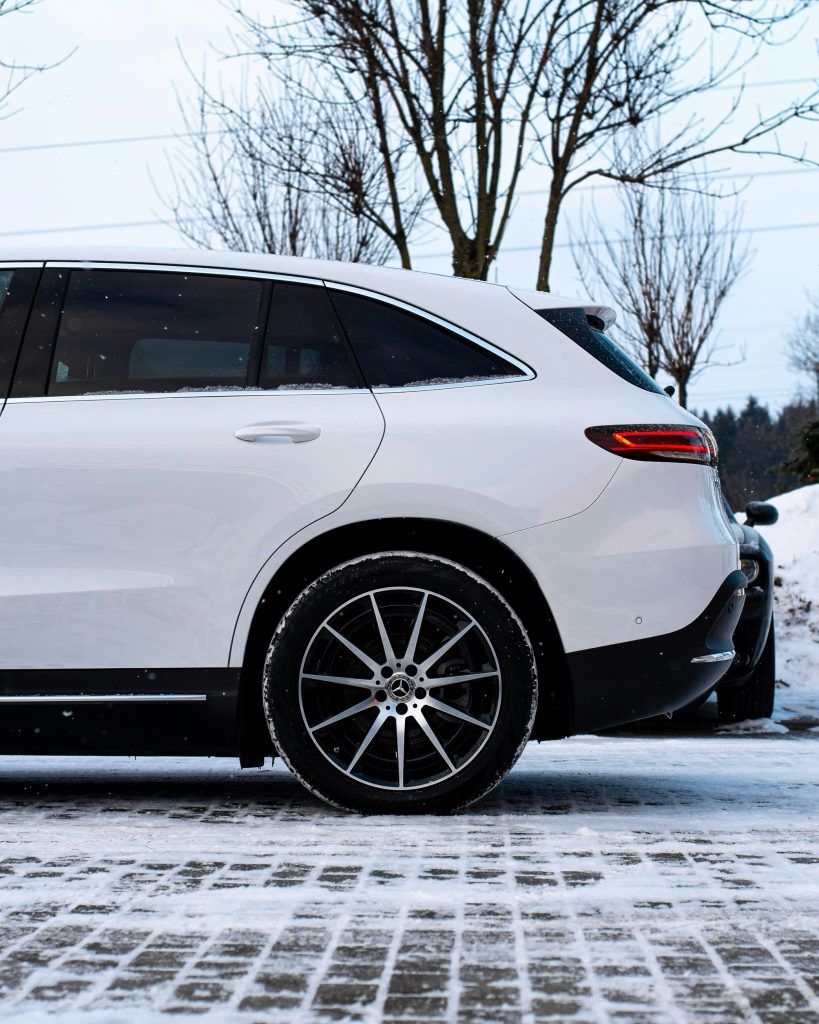Versatility for various terrains and weather conditions
SUV cars offer great versatility for various terrains and weather conditions. With their sturdy built and higher ground clearance, these vehicles are well equipped to tackle different types of roads and surfaces. Whether it’s navigating through city streets or driving on uneven terrains, SUVs provide a smooth and comfortable ride for passengers.
Moreover, SUVs are designed to handle different weather conditions with ease. The robust drivetrain and advanced traction control systems allow these vehicles to maintain a firm grip on slippery surfaces, such as rain-soaked roads or snowy terrains. This makes SUVs a reliable choice for those living in areas with unpredictable weather patterns, ensuring a safe and confident journey throughout the year.
Enhanced safety features
SUV cars have gained popularity for their enhanced safety features. One of the key features that make SUVs a safer option is their larger size and weight, which provide a sturdy structure in the event of a collision. The higher driving position in an SUV also gives the driver better visibility of the road and surrounding vehicles, reducing the chances of accidents caused by blind spots. Additionally, most SUVs are equipped with advanced safety technologies such as anti-lock braking systems (ABS), electronic stability control (ESC), and multiple airbags, which further enhance the safety of the occupants.
Furthermore, SUVs offer a sense of security on the road due to their higher ground clearance. This feature allows drivers to have a better view of the road ahead, including obstacles or hazards that may be hidden from the view of lower vehicles. The improved visibility combined with the rugged structure of SUVs provides a greater sense of confidence and safety, especially when driving through unfamiliar or challenging terrains. Moreover, SUVs often come fitted with four-wheel drive or all-wheel drive systems, which enhance traction and stability on slippery surfaces, such as rain or snow-covered roads, further ensuring the safety of the occupants.
Towing capability for outdoor activities
SUVs are well-known for their towing capability, making them an excellent choice for outdoor enthusiasts. Whether it’s for hauling a camper trailer, a boat, or any other recreational equipment, SUVs offer the necessary towing capacity to take your adventures to the next level. With their robust engines and sturdy construction, SUVs can handle the additional weight and provide a stable towing experience. This versatility allows you to explore new destinations and engage in various outdoor activities with ease.
Furthermore, SUVs often come equipped with advanced towing features that enhance safety and control while towing. These features include trailer sway control, which helps keep the trailer stable during windy conditions or sudden maneuvers, and integrated trailer brake controllers, which enable you to control the braking of both the vehicle and the trailer using a single system. Such safety enhancements not only provide peace of mind, but they also contribute to a smoother towing experience, ensuring the safety of both you and other road users.
Increased visibility on the road
SUV cars offer increased visibility on the road, which is a significant advantage for drivers. With their taller height and larger windows, SUVs provide a better view of the surrounding traffic and road conditions. This enhanced visibility allows drivers to anticipate and react to potential hazards more effectively, reducing the risk of accidents. Whether navigating busy city streets or long highway stretches, the increased visibility of an SUV can instill a sense of confidence and awareness in the driver, promoting safer journeys.
Moreover, the elevated driving position in SUVs contributes to improved visibility. Sitting higher off the ground grants drivers a broader perspective, allowing them to see beyond the immediate view obstructed by other cars and objects. This elevated position can be particularly advantageous during congested traffic situations or when navigating through areas with less-than-ideal road conditions. The added visibility in SUVs empowers drivers to make better-informed decisions, increasing their overall safety on the road.
Disadvantages of SUV Cars:
Higher fuel consumption and maintenance costs are among the primary disadvantages of SUV cars. Due to their larger size and heavier weight, SUVs generally have lower fuel efficiency compared to smaller vehicles. This increased fuel consumption not only impacts the environment but also leads to higher ongoing costs for the owner. Additionally, the maintenance costs for SUVs tend to be higher, as their complex systems and components often require specialized servicing, resulting in higher repair bills.
Maneuvering and parking in small spaces can also be a challenge with SUV cars. The larger dimensions and wider turning radius of SUVs make it harder to navigate through tight city streets or park in compact parking spaces. This can be frustrating for drivers who often find themselves spending more time maneuvering their vehicle in order to find a suitable parking spot. The limited maneuverability can also be a hindrance in congested traffic or crowded areas, where agility and nimbleness are valued.
Higher fuel consumption and maintenance costs
Higher fuel consumption is one of the main disadvantages associated with SUV cars. Due to their larger size and heavier weight, SUVs typically require more fuel to operate compared to smaller cars. This can result in higher fuel costs and a decreased fuel efficiency when compared to other vehicle types.
Additionally, SUVs often have higher maintenance costs. The larger size and more complex systems of SUVs can make repairs and maintenance more expensive compared to smaller vehicles. Regular maintenance tasks, such as oil changes and tire replacements, may be costlier due to the specialized parts and labor required for SUVs. As a result, owners may need to budget more for ongoing maintenance and repairs to keep their SUV in optimal condition.
Difficulty in maneuvering and parking in small spaces
While SUVs offer many advantages, one of the downsides is their difficulty in maneuvering and parking in small spaces. Due to their larger size and bulky design, SUVs can be challenging to navigate in tight urban areas and congested parking lots. The limited visibility from the driver’s seat poses a risk, especially when trying to fit into narrow parking spots or making sharp turns.
Furthermore, the increased length and width of SUVs make parallel parking a more arduous task. Finding a suitable parking space that can accommodate the size of the vehicle can be time-consuming and frustrating. Additionally, the larger turning radius of SUVs can be an impediment when maneuvering in tight corners or making U-turns on narrow streets. It is important for SUV drivers to exercise caution and practice extra vigilance to avoid any potential collisions or causing inconvenience to other drivers in congested areas.
Potential for rollovers due to higher center of gravity
SUV cars have long been criticized for their potential to rollover due to their higher center of gravity. This characteristic arises from the design of SUVs, which typically have a taller body and are built on a truck-like chassis. The elevated profile of these vehicles can increase the risk of rollovers, especially during sudden maneuvers or when taking sharp turns at high speeds. It is important for SUV drivers to be aware of this tendency and exercise caution while driving, especially on curvy roads or in adverse weather conditions.
Despite the potential for rollovers, it is worth noting that significant improvements have been made in the design and technology of SUVs to enhance stability and decrease the likelihood of such incidents. Many SUV models are now equipped with advanced safety features, such as electronic stability control (ESC) systems, that help to mitigate the risks associated with a higher center of gravity. Additionally, the use of specialized engineering techniques, such as lowering the center of mass and optimizing weight distribution, have contributed to improving the overall stability and reducing the susceptibility to rollovers in modern SUVs. However, it is still essential for SUV drivers to remain vigilant and adapt their driving style accordingly to ensure the safety of themselves and others on the road.
Limited off-road capabilities compared to specialized vehicles
SUVs, although capable of traversing rugged terrains and challenging weather conditions, still have their limitations when it comes to off-road capabilities compared to specialized vehicles. While SUVs are known for their versatility and ability to handle various terrains, they may not offer the same level of performance as vehicles specifically designed for off-road adventures.
One of the main reasons SUVs have limited off-road capabilities is their design and construction. While SUVs are built to handle rough roads and uneven surfaces, they are not equipped with the same specialized features and components found in off-road vehicles. This means that when faced with extreme off-road conditions such as steep inclines, deep mud, or rock crawling, SUVs may struggle to maintain traction and control. Additionally, the higher center of gravity in SUVs can increase the risk of rollovers, making them less suitable for off-road enthusiasts seeking more intense off-road experiences.
Higher initial purchase price compared to smaller cars
When it comes to purchasing a car, one of the factors that consumers often consider is the initial purchase price. In this aspect, SUV cars tend to have a higher price tag compared to smaller cars. This can be attributed to various factors, including the larger size and more powerful engine of SUVs. The additional cost involved in manufacturing and designing these vehicles contributes to their higher initial purchase price.
Despite the higher initial cost, SUV cars offer several advantages that can justify the investment for many buyers. SUVs provide more interior space, allowing for greater comfort and versatility, especially for families or individuals who frequently travel with a lot of cargo or equipment. Additionally, SUVs often come equipped with advanced features and technologies, enhancing the overall driving experience and safety. While the upfront cost may be higher, these benefits can make SUV cars a smart choice for those looking for a reliable and capable vehicle.

